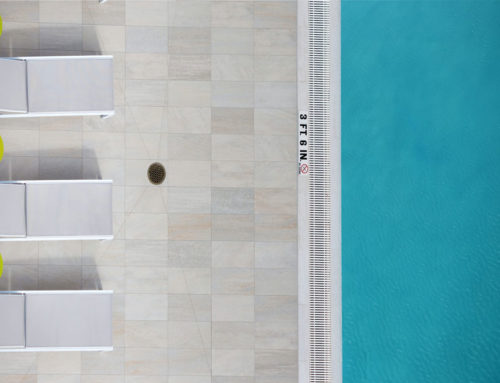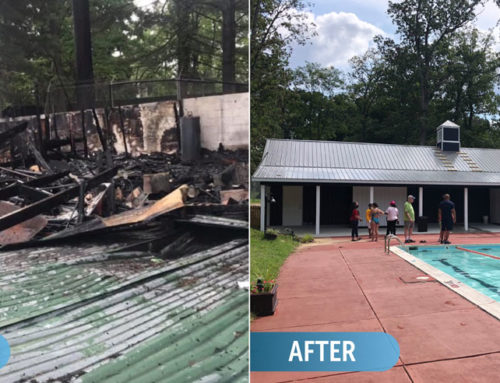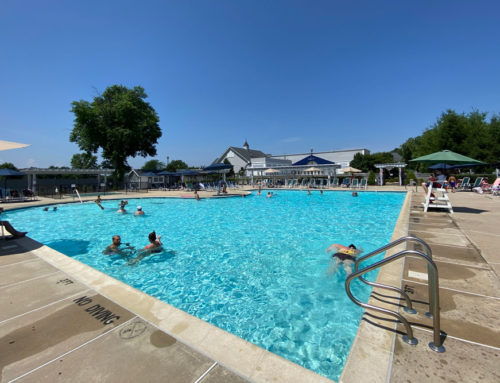Far beyond having lifeguards to keep watch over patrons, pool safety starts with the water — more specifically the chemicals used to keep the water hygienic and safe.
In order to maintain a safe and healthy environment for you and your patrons safe we’ve compiled a guide to walk you through the tips and tricks of pool chemical storage to avoid harmful reactions, spills, and chemical mixing.
How to Store Pool Chemicals Properly
Read the label. Above all, this is the most important step. Labels identify the chemical, the appropriate hazard warnings, and reactive properties. Knowledge and understanding of this information will prevent incidents more than taking any other action.
Maintain temperature levels. Storage room temperatures should not exceed 95º F, so steer clear of areas with high humidity and direct sunlight.
Keep chemicals dry. To avoid corrosion and noxious gases, store chemicals on a flat raised surface instead of the floor. Make sure chemicals are away from doors and windows; taking extra precaution to cover the containers using waterproof materials.
Store separately. Each chemical should be stored individually, including all chlorine products. Only like chemicals should be stored above or below each other. (note: chlorine and acid must never be stored side-by-side)
Combat fire hazards. To avoid the risk of ignition, store gasoline, lawnmowers and grills away from pool chemicals, and keep the storage area clean of trash, debris and rags.
Think twice before cleaning. When cleaning the storage area, be sure to use cleaning agents that are compatible with the pool chemicals to circumvent dangerous reactions.
Let the air flow. Chemical storage areas must be well lit and ventilated. This is especially important if chemicals are stored in the pump room, in which case emergency HVAC cutoffs are needed.
Knowledge is power. Outside of reading labels, having a well trained staff is the second best way to bypass incidents and injury. Anyone handling chemicals should have a full understanding of OSHA standards as well how to use PPE (personal protective equipment).
When the risk of chemical injury, illness, or damage to equipment is minimized, everyone — including the pool owner or manager — can focus on leisure and physical recreation. Using an experienced pool professional well trained in chemical storage and handling practices will minimize risk and maximize your peace of mind.






